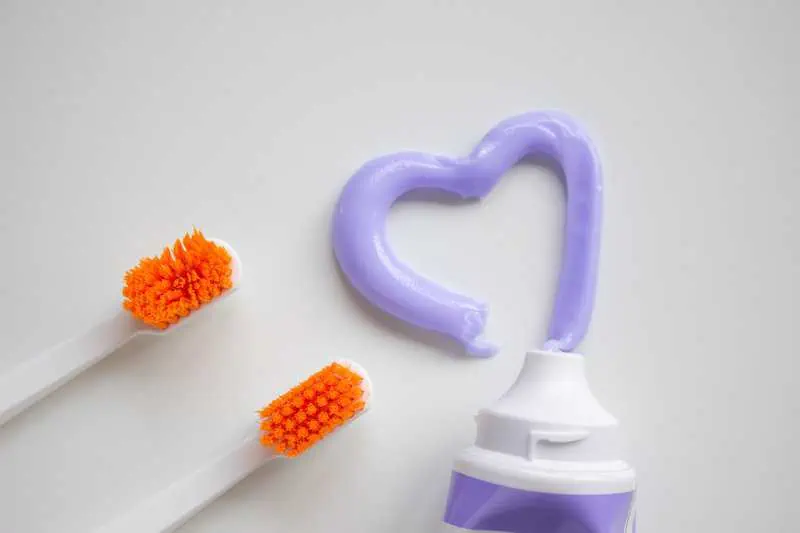
When it comes to teeth whitening, we’re constantly bombarded with advertisements for various products that promise to deliver dazzling results. One product that has garnered some attention in recent years is purple toothpaste. You may have heard claims that using purple toothpaste can whiten your teeth effectively, but is this fact or just another marketing myth? Join your dentist in Plano as we share some facts and bust some myths about purple toothpaste.
Fact: Purple Toothpaste Contains Active Whitening Ingredients
One fact about purple toothpaste is that many brands often contain active ingredients known for their teeth-whitening properties. Three common ingredients found in these toothpaste formulations are hydrogen peroxide, baking soda, and activated charcoal.
Hydrogen Peroxide – This bleaching agent is found in many teeth whitening products, including those used by your dentist in Plano. It works by breaking down stains on the enamel and can contribute to a whiter appearance.
Baking Soda – Baking soda has mild abrasive properties that can help remove surface stains from teeth. Its use in purple toothpaste is grounded in scientific evidence as it’s known to be effective as a stain remover.
Activated Charcoal – Activated charcoal can help remove some types of surface stains on teeth (extrinsic stains). However, stains that originate within teeth (intrinsic stains) probably won’t be affected by charcoal.
Myth: Purple Toothpaste Can Dramatically Whiten Teeth
While purple toothpaste may contain teeth-whitening ingredients, it’s essential to manage your expectations. The myth surrounding purple toothpaste lies in the belief that it can dramatically whiten teeth, rivaling professional treatments or over-the-counter whitening strips. In reality, the concentration of active ingredients in purple toothpaste is usually lower than that found in specialized teeth-whitening products, which limits their whitening potential.
Fact: Purple Toothpaste Can Help Maintain Whiteness
Another factual aspect of using purple toothpaste is its ability to help maintain tooth whiteness achieved through professional treatments or stronger over-the-counter products. Regular use of purple toothpaste may assist in preventing new stains from forming and contribute to maintaining a brighter smile.
Myth: Purple Toothpaste Is a Miracle Solution
Don’t fall for the myth or the dramatic videos on social media that show purple toothpaste is a miracle solution. Achieving a truly dazzling smile often requires a multifaceted approach that includes proper oral hygiene, regular dental check-ups, and, in some cases, professional teeth-whitening treatments. Relying solely on purple toothpaste to transform stained or discolored teeth is unrealistic.
Fact: Good Oral Hygiene Is Key
Regardless of the toothpaste color, the foundation for a white smile starts with excellent oral hygiene practices. Brushing your teeth twice a day, flossing daily, and avoiding stain-inducing foods and beverages are essential steps in maintaining a bright smile. Purple toothpaste can be a part of this routine if approved by your dentist in Plano, but it shouldn’t replace the basics of good oral care.
Myth: Purple Toothpaste Is Suitable for Everyone
Another myth to dispel is that purple toothpaste is suitable for everyone. Some individuals may have underlying dental issues or sensitivity that could be exacerbated by certain toothpaste formulations, including purple ones. It’s essential to consult with your dentist before making any significant changes to your dental care routine, especially if you have concerns about tooth sensitivity or enamel erosion.
Even though purple toothpaste can certainly add an element of fun to your dental routine, it’s crucial to separate the facts from the myths when considering its effectiveness. While purple toothpaste can help maintain whiteness and remove surface stains, it’s not a miracle solution for achieving Hollywood-worthy teeth. Good oral hygiene practices and professional dental care remain fundamental to achieving and maintaining a dazzling smile.